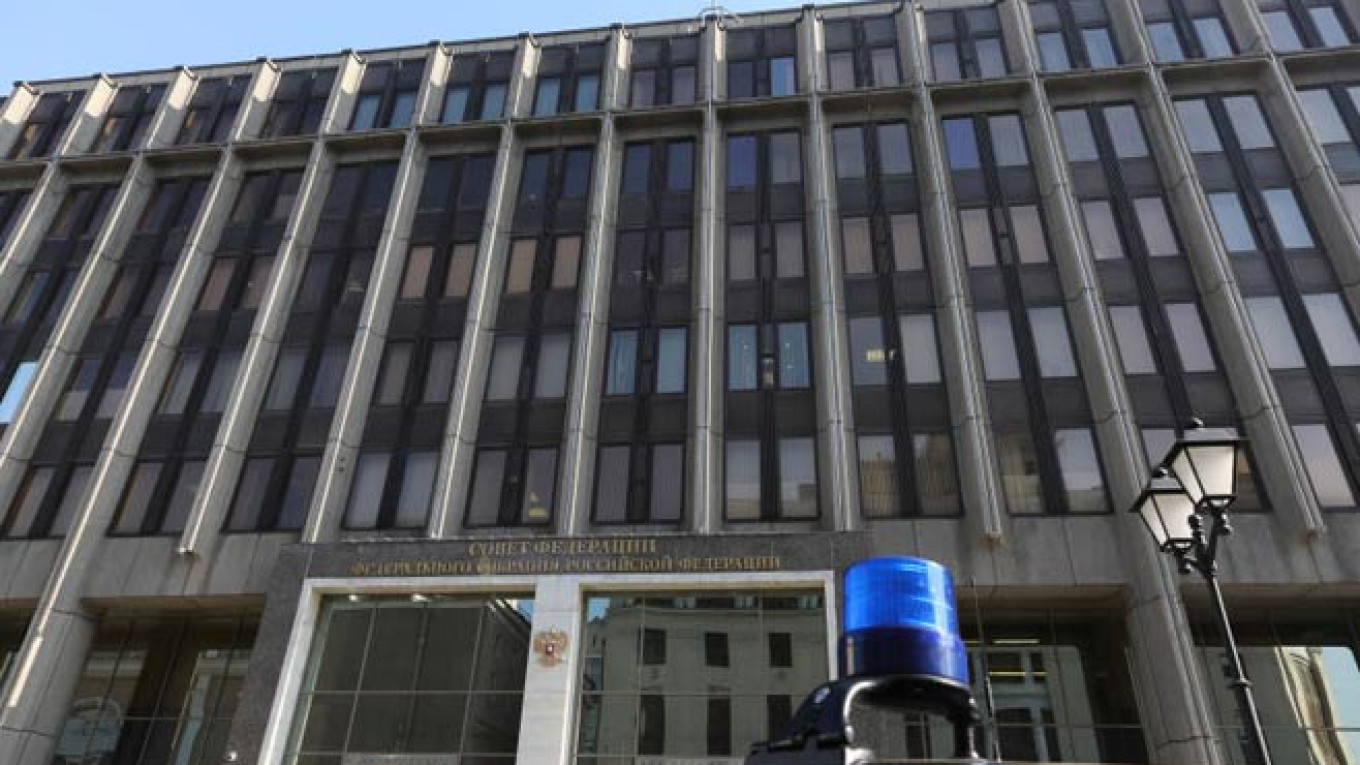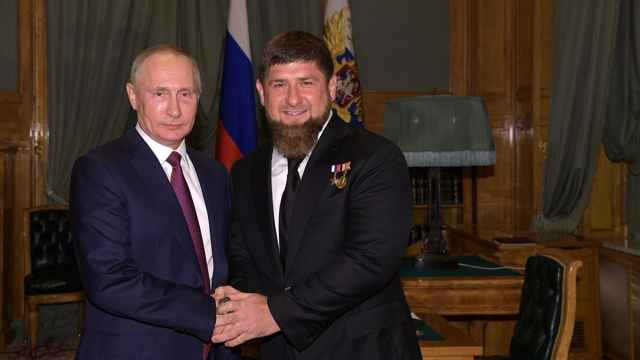Russia's Federation Council on Wednesday gave its blessing to legal changes that would require foreign citizens to prove their ability to speak Russian.
Foreigners would be required to prove their knowledge with a certificate from an accredited institution proving that they had knowledge of the Russian language, Russian history and basics of Russian law in order to receive a work or residency permit, an explanation on the Federation Council's website said.
If the bill is signed by President Vladimir Putin, starting on Jan. 1, 2015, potential foreign residents without education documents from former Soviet countries will be required to pass an exam to receive the required certificate.
Federation Council member Lyudmila Bokova said that the bill would exempt those under 18 years old, over 60 and students at accredited institutions, as well as qualified foreign specialists and their families. The bill would "facilitate the cultural and linguistic adaptation of foreign citizens in Russia," Bokova said, RIA Novosti reported.
The exemptions to the bill suggest that it is aimed at immigrants from Central Asia, who come to major cities like Moscow to perform manual labor work and are perceived as having little grasp of Russian. Those immigrants who have already been issued residence permits will be required to meet education requirements when applying for renewal under the approved law.
Another law approved by the Federation Council on Wednesday suggests that lawmakers have differing attitudes toward potential residents from parts of the former Soviet Union.
The upper house of parliament signed off on a bill that would simplify the citizenship procedure for native Russian speakers whose relatives at one point lived in Russia, the Soviet Union or the Russian Empire.
The bill, which passed the State Duma in its second reading earlier this month, has been viewed as a means for quickly granting citizenship to Russian-speaking residents in eastern Ukraine, who Russian government officials have said are under threat from the new central government in Kiev.
The law proposes that interviews be conducted with Russian speakers to determine whether their language abilities are at a suitable level for everyday life, and the subsequent citizenship process would then take no longer than three months, Interfax reported.
The normal procedure for obtaining citizenship requires foreign nationals to live in Russia for five years.
Contact the author at c.brennan@imedia.ru
A Message from The Moscow Times:
Dear readers,
We are facing unprecedented challenges. Russia's Prosecutor General's Office has designated The Moscow Times as an "undesirable" organization, criminalizing our work and putting our staff at risk of prosecution. This follows our earlier unjust labeling as a "foreign agent."
These actions are direct attempts to silence independent journalism in Russia. The authorities claim our work "discredits the decisions of the Russian leadership." We see things differently: we strive to provide accurate, unbiased reporting on Russia.
We, the journalists of The Moscow Times, refuse to be silenced. But to continue our work, we need your help.
Your support, no matter how small, makes a world of difference. If you can, please support us monthly starting from just $2. It's quick to set up, and every contribution makes a significant impact.
By supporting The Moscow Times, you're defending open, independent journalism in the face of repression. Thank you for standing with us.
Remind me later.






